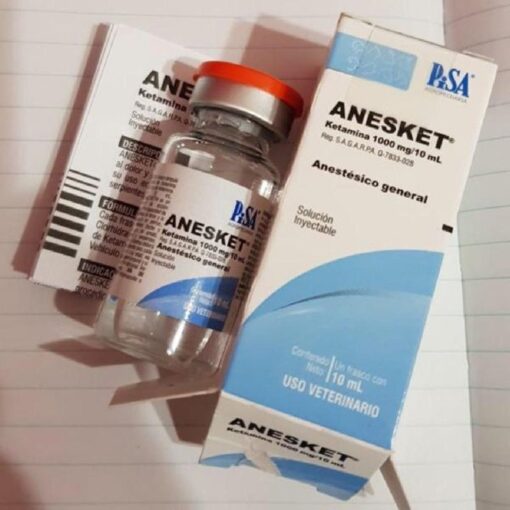Blog
Is Ketamine an Opioid?
Table of Contents
Is Ketamine an Opioid? Understanding the Difference
Ketamine is increasingly used in both clinical and mental health settings, especially for treatment-resistant depression, chronic pain, and PTSD. However, due to its powerful effects on the brain and its role in pain relief, many people wonder: Is ketamine an opioid? The short answer is no, ketamine is not an opioid — but understanding why requires a closer look at how ketamine works and how it differs from opioids.
Our latest and greatest
-
Anasket Ketamine 50mg/1ml
Price range: $100.00 through $840.00 -
Calypsol Ketamine 50mg/1ml
Price range: $150.00 through $525.00 -
Ketamine Crystal
Price range: $120.00 through $1,050.00 -
Ketamine Crystals Test Run
$50.00 -
Ketamine Lozenges
Price range: $130.00 through $4,500.00
What Is Ketamine?
Ketamine is a dissociative anesthetic, originally developed in the 1960s and widely used in emergency medicine, surgery, and veterinary care. In recent years, it has gained attention for its fast-acting antidepressant and pain-relieving properties, particularly when other treatments have failed.
It is classified as an NMDA (N-methyl-D-aspartate) receptor antagonist, meaning it works by blocking specific receptors in the brain involved in pain perception, memory, and mood regulation. Is Ketamine an Opioid?
What Are Opioids?
Opioids are a class of drugs that include both prescription pain relievers (like morphine, oxycodone, and hydrocodone) and illegal substances (like heroin). They work by binding to opioid receptors in the brain, altering how the body perceives pain and producing a sense of euphoria.
While effective for short-term pain management, opioids have a high potential for addiction, tolerance, and overdose, making them a major contributor to the current global opioid crisis.

Key Differences Between Ketamine and Opioids
| Feature | Ketamine | Opioids |
|---|---|---|
| Drug Class | Dissociative anesthetic | Narcotic analgesic |
| Mechanism of Action | Blocks NMDA receptors | Binds to opioid receptors |
| Addiction Risk | Low to moderate (under medical use) | High |
| Primary Uses | Anesthesia, depression, chronic pain | Pain relief, anesthesia |
| Respiratory Depression | Rare at therapeutic doses | Common and potentially life-threatening |
| Euphoria | Can cause dissociation or floating feeling | Strong euphoria |
Why People Think Ketamine Is an Opioid
The confusion often comes from the fact that ketamine is used to treat pain, similar to opioids. Additionally, it may produce sensations of sedation or detachment, which can resemble the effects of opioids. However, these effects come from different brain pathways and receptors, and ketamine does not produce the same chemical dependence or withdrawal symptoms typical of opioid use. Is Ketamine an Opioid?
In fact, some studies have shown that ketamine can reduce opioid use in surgical and chronic pain patients, making it a valuable tool in pain management with less risk of addiction.

Is Ketamine Addictive?
While ketamine is not classified as physically addictive in the same way opioids are, it does have potential for misuse, particularly at high doses or without medical supervision. Recreational use of ketamine can lead to psychological dependence, and chronic abuse may result in cognitive or urinary issues.
In clinical settings, however, ketamine is used at controlled doses with medical oversight, greatly reducing the risk of misuse.
Ketamine in Mental Health Treatment
One of the most promising uses of ketamine today is in the field of psychiatry. Ketamine therapy has been shown to rapidly alleviate symptoms of depression, anxiety, PTSD, and suicidal ideation, even in patients who have not responded to other treatments.
This makes it a valuable non-opioid option for individuals who are seeking alternative approaches to mental health and pain relief.

Final Answer: No, Ketamine Is Not an Opioid
Ketamine and opioids are fundamentally different in how they work, their risks, and their applications. Ketamine is a dissociative anesthetic and NMDA receptor antagonist, while opioids work by binding to opioid receptors to manage pain. Though both may be used for pain relief, ketamine offers a safer, non-opioid option with lower risk of addiction when used responsibly under medical supervision. Is Ketamine an Opioid
Looking for Safe Ketamine Therapy?
If you’re exploring ketamine therapy for depression, anxiety, or chronic pain, visit Keta-Mine.com. We are a licensed online ketamine clinic offering personalized treatment plans, professional medical support, and convenient at-home access to ketamine therapy. Is Ketamine an Opioid






